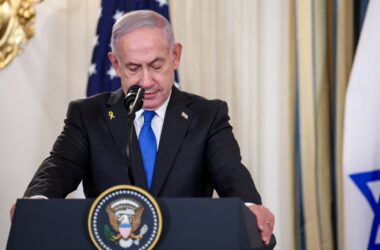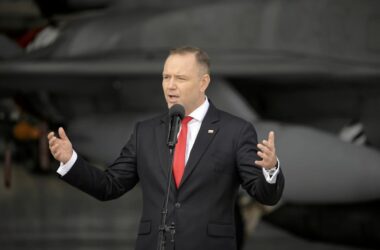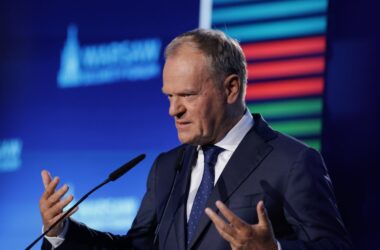Ukrainian President Volodymyr Zelensky flew to Washington on Friday to meet President Donald Trump, seeking Tomahawk missiles for Ukraine and an enhanced air‑defense build‑up ahead of winter.
Zelensky’s Washington Visit
Zelensky arrived in Washington to meet Trump the day after the U.S. President declared “significant progress” in talks with Russian President Vladimir Putin. The meeting is the third U.S. trip by the Ukrainian leader since January.
Request for Tomahawk Missiles
Zelensky plans to ask Trump for long‑range Tomahawk missiles and a strengthened air‑defense system to counter potential Russian attacks this coming winter. Kiev stresses that Russian forces have lost strategic initiative, leaving the Kremlin with only terror tactics against civilian energy infrastructure.
Trump’s Stated Motives
Trump says the meeting should accelerate peace talks on terms set by the United States. He has softened his tone toward Ukraine, praising the country’s resilience and army effectiveness, while continuing arms supplies through allied European partners. The administration has not criticized Ukraine’s attacks on Russian refineries and energy sites, which are seen as tacit approval of retaliatory actions.
Kremlin’s Response
After Trump’s phone call with Putin, the Kremlin warned that Russia could not distinguish incoming Tomahawks from nuclear‑armed missiles, and Putin cautioned that such a move would drag the United States into war. Officials in Kyiv and Washington treat these remarks as typical intimidation rhetoric aimed at hampering real military buildup.
Analysis of Negotiation Dynamics
Experts note that the Kremlin often threatens nuclear options when it fears a genuine strengthening of Ukraine. Zelensky’s visit is therefore pivotal, and the decisions made at the White House could influence the war’s trajectory. Analysts argue that Trump’s “Tomahawk and carrot” strategy is aimed at coercing Putin into concessions, but its effectiveness remains uncertain.
Potential Impacts on the War
Economist Serhiy Fursya says that even if Tomahawks reached Ukraine, they would have limited operational impact on the front or the Russian economy; five dozen missiles represent a symbolic rather than decisive blow. Commentators warn that a Trump‑Putin meeting may not advance the end of hostilities, as Putin can still sell Trump illusory promises. The situation was further critiqued by political scientist Jȇwhên Mahda, who argued that Trump has become an intermediary rather than a strategic partner for Ukraine.










